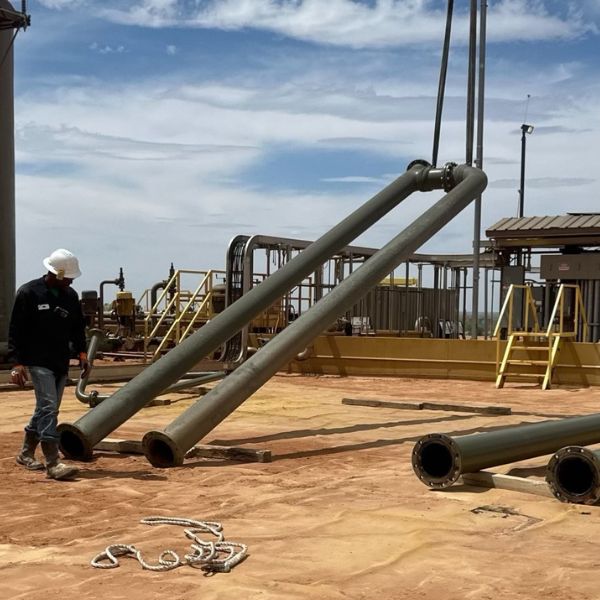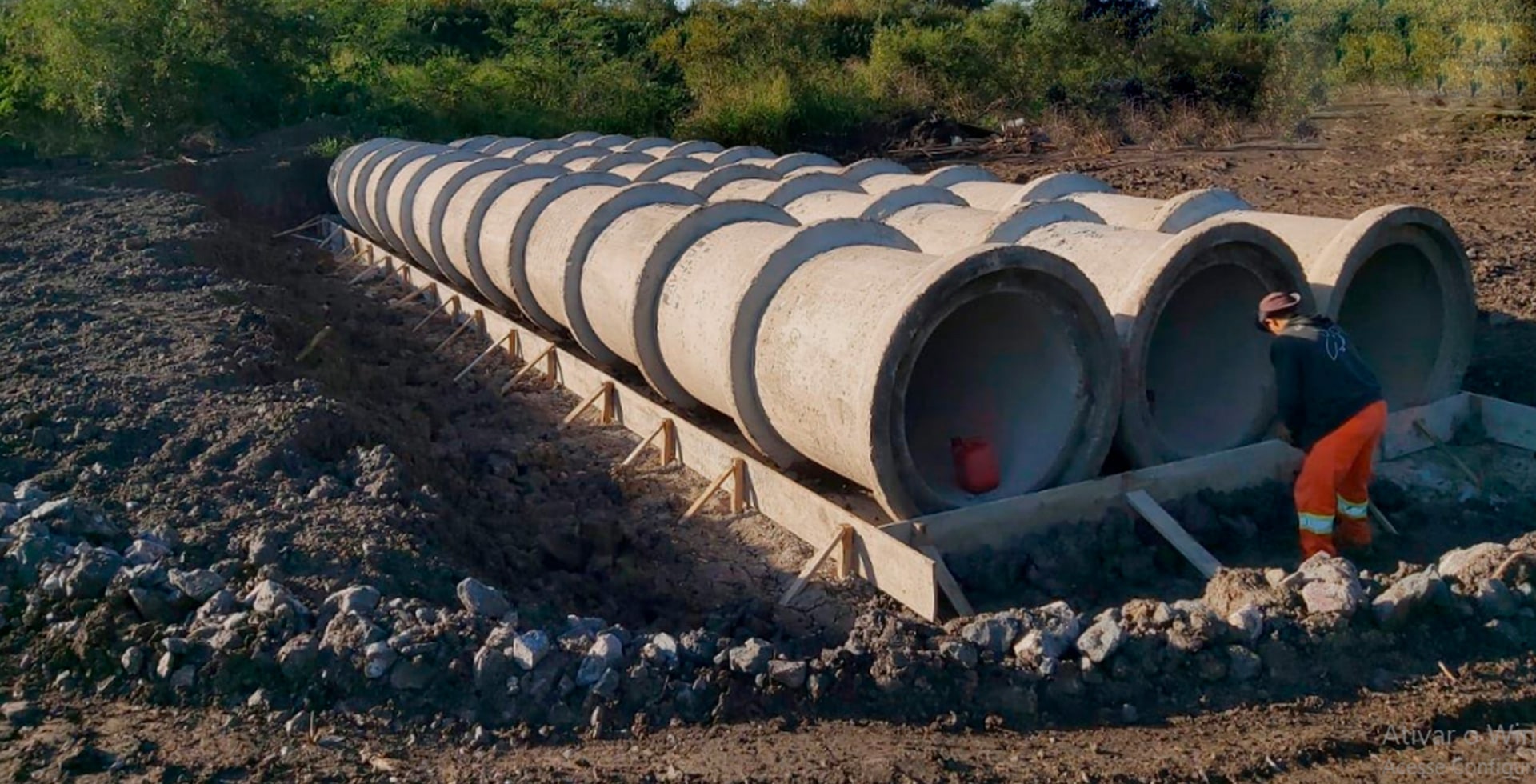The Role of Pipeline Construction Services in Modern Infrastructure
Wiki Article
The Crucial Overview to Recognizing Pipeline Construction Providers and Their Relevance
Pipeline Construction services are essential to the transport of necessary resources such as oil, gas, and water. These services entail thorough preparation and implementation, adhering to strict security and environmental criteria. As the sector adapts to modern-day challenges, recognizing its implications and parts ends up being increasingly important. What variables contribute to the expanding importance of these solutions in today's economic climate? The adhering to sections will certainly explore these important elements.Review of Pipeline Construction Solutions
Pipeline Construction solutions encompass a variety of tasks vital for the installation and upkeep of pipes used to deliver various compounds, including oil, water, and gas. These solutions are crucial for ensuring the risk-free and effective activity of resources from one location to another. The process normally starts with thorough preparation and layout, which takes into consideration regulative requirements, ecological factors to consider, and logistical obstacles.Excavation and grading of the land are carried out to prepare the site for Pipeline setup once planning is full. This is complied with by the actual laying of the pipes, which involves welding or signing up with sections with each other to create a continual flow path. After installment, strenuous testing is carried out to guarantee integrity and security. Maintenance services are likewise given to deal with any kind of problems that might develop in time. Generally, Pipeline Construction services play a critical duty in sustaining infrastructure for power and water distribution.
Trick Parts of Pipeline Construction
An effective Pipeline Construction job relies upon a number of crucial elements that ensure the safe and efficient installment of the Pipeline system. Complete site evaluations are crucial, as they recognize the environmental and geographical variables that may impact Construction. Next, the choice of appropriate materials, such as installations and pipes, is crucial for securing toughness and compatibility with the moved substances.Progressed Construction methods, consisting of trenchless modern technology and directional drilling, improve performance and reduce environmental influence. Effective task monitoring is another crucial element, working with labor, tools, and timelines to satisfy task goals.
In addition, interaction amongst stakeholders, including designers, specialists, and local authorities, warranties alignment on task specifications and requirements. Ultimately, thorough quality assurance actions throughout the Construction procedure guarantee conformity with market requirements and maximize the Pipeline's operational lifespan. Collectively, these elements create the backbone of a successful Pipeline Construction job.
Safety And Security Criteria and Rules in Pipeline Construction

Governing bodies, such as the Occupational Safety And Security and Health And Wellness Management (OSHA) and the Pipeline and Hazardous Products Safety Management (PHMSA), set forth details requirements that regulate Construction techniques. These include methods for equipment usage, employee training, and emergency feedback treatments. By implementing these criteria, Construction companies not only safeguard their staff members but additionally protected public trust. Ultimately, rigorous security procedures contribute to the long-lasting success of Pipeline tasks, guaranteeing they fulfill both functional and ecological assumptions.
Environmental Factors To Consider in Pipeline Projects

Environmental factors to consider are important to the preparation and implementation of Pipeline tasks. These tasks must assess possible influence on communities, water sources, and regional wildlife. Performing detailed ecological influence assessments (EIAs) is crucial, permitting stakeholders to determine and alleviate dangers prior to Construction begins.
Shielding sensitive areas, such as marshes and habitats, often requires carrying out details design attributes or alternative routing to lessen disturbance. Furthermore, Pipeline drivers are tasked with creating approaches for avoiding spills and leaks, which can have terrible results on the setting.
Interaction with neighborhood areas is vital, as public concerns can lead to task modifications that enhance ecological defense. Conformity with guidelines set by environmental firms ensures that jobs meet sustainability requirements, fostering a balance between facilities requirements and eco-friendly conservation. Eventually, dealing with environmental factors to blog here consider not just safeguards nature however additionally advertises area trust fund and job practicality.
The Role of Technology in Pipeline Construction
Modern technology plays an important role in modern Pipeline Construction, boosting efficiency and accuracy. Advanced surveying techniques permit for specific preparation and implementation, minimizing environmental impact and task delays. Furthermore, the assimilation of automation and robotics enhances operations, lowering labor costs and boosting safety on Construction websites.Advanced Checking Methods
Advanced surveying strategies play a vital role in the effective execution of Pipeline Construction tasks. These methods take advantage of innovative innovation to ensure exact mapping and analysis of the terrain where pipes will be set up. Strategies such as Geographic Information Systems (GIS), LiDAR (Light Detection and Ranging), and 3D modeling enable engineers to envision and assess the landscape, identifying prospective barriers and ecological concerns. By using these innovative devices, teams can enhance accuracy in placing and alignment, significantly reducing the danger of mistakes during Construction. Furthermore, real-time information collection permits immediate modifications and informed decision-making throughout the project lifecycle. Inevitably, these surveying technologies add to boosted efficiency, safety and security, and sustainability in Pipeline Construction efforts.Automation and Robotics

Economic Impact of Pipeline Framework
Pipeline infrastructure plays an important role in shaping regional economic climates and facilitating trade. By supplying a reliable methods of transporting oil, gas, and other assets, pipelines decrease transportation prices and enhance supply chain efficiency. This infrastructure brings in financial investment, boosts job development, and fosters financial development in bordering locations.The Construction and upkeep of pipelines add significantly to regional economies, developing countless work chances in various fields, from engineering to labor. The increase of work typically causes enhanced find more info spending in neighborhood services, even more boosting economic task.
In addition, pipes enhance power safety by guaranteeing a steady supply of sources, which is vital for industrial procedures and domestic demands. As areas come to be adjoined through Pipeline networks, they access to wider markets, enhancing competition and economic strength. The economic influence of Pipeline facilities is multifaceted, influencing both prompt neighborhood economic situations and broader local growth.
Future Fads in Pipeline Construction Services
The future of Pipeline Construction solutions is progressing in feedback to technical innovations, governing adjustments, and growing ecological considerations. Advancements such as robotics and drones are enhancing assessment and upkeep procedures, boosting security and effectiveness. Automation is poised to minimize labor costs and raise precision in Construction procedures. Additionally, the enhancing focus on sustainability is triggering firms to take on environment-friendly materials and practices, straightening with global initiatives to lower carbon impacts.Governing structures are additionally adapting to address ecological influences, promoting greater openness and responsibility in Pipeline tasks. Furthermore, the integration of smart modern technologies, including real-time tracking systems, is expected to enhance the dependability and performance of Pipeline networks. As power demands shift towards eco-friendly sources, Pipeline Construction solutions will likely see a rise in tasks connected to biofuels and hydrogen transport. Generally, these patterns show a transformative duration for the Pipeline Construction market, focused on innovation and sustainability.
Frequently Asked Concerns
What Kinds of Pipelines Are Typically Created?
Numerous sorts of pipes are generally created, consisting of oil, gas, sewage, and water pipelines - Pipeline Construction Services. Each offers distinct objectives, helping with the transport of crucial resources across regions while adhering to safety and security and environmental regulationsJust how Lengthy Does a Normal Pipeline Job Take?
The period of a typical Pipeline job differs considerably, frequently ranging from numerous months to a few years. Elements influencing this timeline include task complexity, governing authorizations, and ecological factors to consider that have to be resolved.That Regulates Pipeline Construction Business?
Pipeline Construction companies are managed by various federal, state, and neighborhood companies, consisting of the Pipeline and Hazardous Products Safety And Security Administration (PHMSA) and state public energy payments, ensuring compliance with safety and ecological requirements throughout the Construction process.What Prevail Products Made Use Of in Pipeline Construction?
Usual materials made use of in Pipeline Construction consist of steel, polyethylene, and PVC. Each product provides distinctive advantages such as durability, resistance, and adaptability to corrosion, making them appropriate for numerous applications in delivering gases and fluids.
Just How Are Pipeline Construction Prices Approximated?
Pipeline Construction expenses are estimated by analyzing aspects such as product expenses, labor rates, project intricacy, ecological considerations, and governing demands (Pipeline Construction Services). Accurate price estimate learn this here now assurances effective budgeting and project preparation throughout the Construction procedurePipeline Construction services encompass an array of activities vital for the installment and maintenance of pipelines utilized to deliver different compounds, consisting of oil, gas, and water. An effective Pipeline Construction project relies on numerous vital parts that guarantee the risk-free and reliable setup of the Pipeline system. Advanced surveying strategies play an essential duty in the effective implementation of Pipeline Construction jobs. Various types of pipelines are typically built, consisting of oil, water, gas, and sewage pipelines. Pipeline Construction costs are estimated by examining elements such as product costs, labor prices, job intricacy, ecological considerations, and governing demands.
Report this wiki page